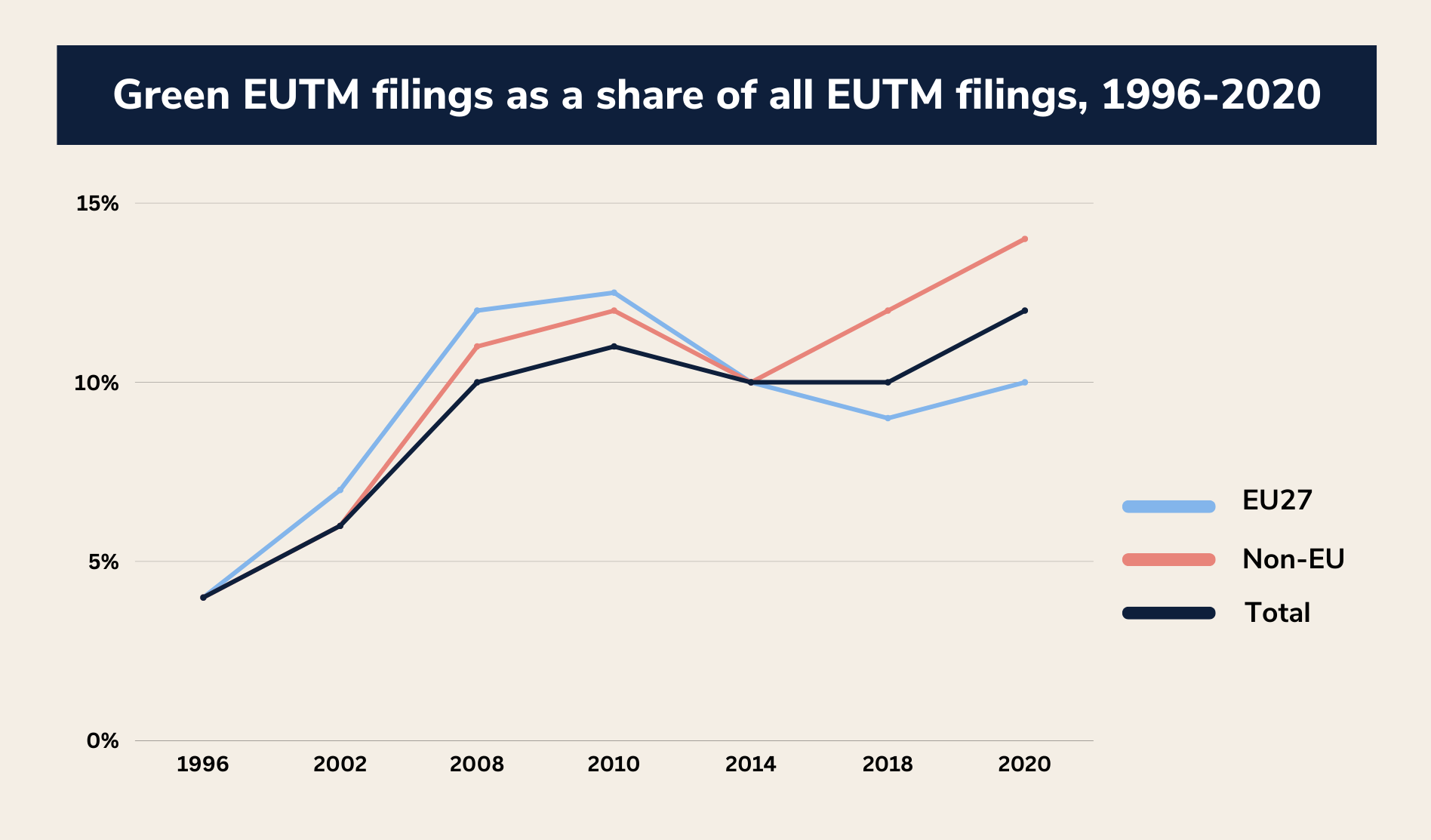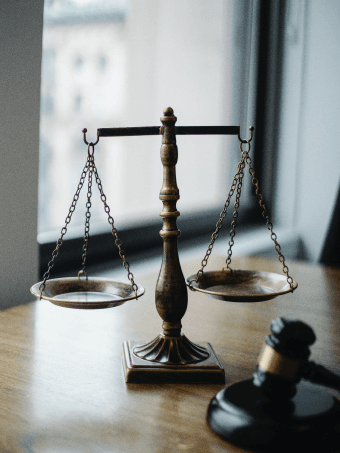What is a green trademark?
Trademark is a sign capable of distinguishing the goods or services of one company from the goods or services of other companies. In practical terms, trademarks are closely connected to branding as it is often the visual element alongside the name of a brand that represents the trademark distinguishing the company’s product and service offerings from those of competitors. At the same time, the trademark offers a considerable level of legal protection against infringement attempts.
A green trademark is a collective term for specific trademarks, service marks, and certification marks that communicate environmentally friendly products, services, or practices. The general purpose of trademarks might either be to create an investment or to ensure that third parties do not have the opportunity to monopolize a term or a sign. The purpose of green trademarks is mainly to inform consumers about the environmentally friendly nature of goods, services and technologies. In this way, businesses are able to demonstrate their share for sustainable development as well as to influence environmentally-conscious consumers in their purchase decisions.
Green trademarks on the rise
Environmental considerations are becoming increasingly important for brand owners filing trademark applications, as reflected in the growing numbers of green EU Trademarks filed at the EUIPO. In 2021, the EUIPO published an extensive report on the new trademark applications of and their respective industry sectors.

There are multiple reasons that could explain this sudden surge, amongst them increasing brand interest in environmentalism and continuously shifting consumer behavior. The environmentally-conscious approach provides multiple competitive advantages to businesses. Find out more about the benefits of green trademarks.
What is greenwashing?
Employing green-branding practices and using terms such as “eco” or “green” in product advertisements is an attractive marketing tool not just for winning more consumers but also potential employees. However, with the rise of consumer demand for environmentally-friendly products and services, multiple brands have opted for “greenwashing” practices in order to address this trend. Greenwashing refers to the practice of using eco terms without actually employing any of the environmentally-conscious practices implied within the trademark. Greenwashing misleads market actors and does not give due advantage to those companies that are making the effort to green their products and activities. It ultimately leads to a less green economy.
By definition, a trademark needs to display sufficient distinctiveness to identify the origin and ownership of the products and services. If the trademark office finds that the trademark is deceptive and likely to mislead the consumers, it will not be registered. Additionally, words like “Natural”, “Organic”, and “Plant-based” are descriptive and, on their own, lack the distinctiveness required for registration. Overall, in order to increase the distinctive character of a trademark, business owners should avoid generic, descriptive, and misleading words in their word trademark. Guidelines formulated by the Federal Trade Commission in the United States in the Green Guides, by the European Union in its directive on Unfair Commercial Practices, and the Canadian Competition Bureau’s Guidelines For Environmental Claims in Advertisements (Guidelines) offer clear guidance on what constitutes misleading information.
EU Initiative on substantiating green claims
To tackle the issue of greenwashing, the European Green Deal states, “Companies making ‘green claims’ should substantiate these against a standard methodology to assess their impact on the environment”. The 2020 Circular Economy action plan commits that “the Commission will also propose that companies substantiate their environmental claims using Product and Organisation Environmental Footprint methods.”
The latest draft of a legal proposal by the European Commission aims to jointly establish a coherent policy framework to help the Union to make sustainable goods, services and business models the norm and to transform consumption patterns in a more sustainable direction. The new rules will provide a standardised set of guidelines to assess the environmental impacts of products and substantiate claims such as “100% recycled” or made from “all-natural” ingredients. Although it’s hard to tell when the proposal will turn into a substantial ban on greenwashing practices, it is already clear that greenwashing will be subject to increased scrutiny by courts, authorities and consumers.
Takeaway
The last decade has seen a rapid increase in demand from consumers for “environmentally friendly” products and services. A brand is what resonates with consumers, signalling the proposition, quality, price and trust associated with a given product/service. This trust can be easily broken by misleading advertisements and deceptive claims, which can also lead to potential legal complications for brand owners. To avoid claims in relation to “greenwashing”, businesses should ensure that any use of green trademarks is a true reflection of the strategy and product offering.


